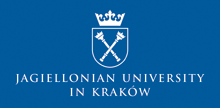1st Circular of the 3rd Jagiellonian Symposium on Fundamental and Applied Subatomic Physics
We are pleased to announce for the first time that the 3rd Jagiellonian Symposium on Fundamental and Applied Subatomic Physics will take place in Kraków between June 23 and June 28, 2019. Following the tradition of the past events, the conference will be held in Collegium Maius, the oldest building of the university founded in the 14th century.
The series of Jagiellonian Symposia on Fundamental and Applied Subatomic Physics organized at the Jagiellonian University follows the tradition of "Symposia on Applied Nuclear Physics and Innovative Technologies" organized in Kraków since 2013 and previous thematic Symposia whose history reaches back to 2001. Since then the scientific scope of the Symposia has been vastly extended and today the goal of the Jagiellonian Symposium is to bring together scientists from physics, nuclear medicine and healthcare, allowing for an exchange of experience and expertise gained by various institutions in the field of applied and fundamental nuclear as well as atomic and particle physics, medical imaging, radiotherapy and healthcare. The symposium will be a showcase for forefront experimental as well as theoretical developments, where the interplay between outstanding research and innovative concepts on the borderline between basic and applied science will be promoted.
The Symposium will feature invited plenary talks by outstanding scientists including a keynote speaker on each day of the conference. The program will also comprise oral and poster contributions by young researchers and PhD students. The scientific scope cover the following fields:
- Medical imaging technologies
- Principles and applications of positronium physics
- Discrete symmetries
- Tests of foundations of physics
- Exotic atomic and hadronic matter
- Technologies in radiation detection
- High performance signal processing and data analysis
- Neutron activation techniques in medicine and homeland security
- Positron annihilation lifetime spectroscopy
- Radiation therapy technologies
- Effects of radiation on living organisms

